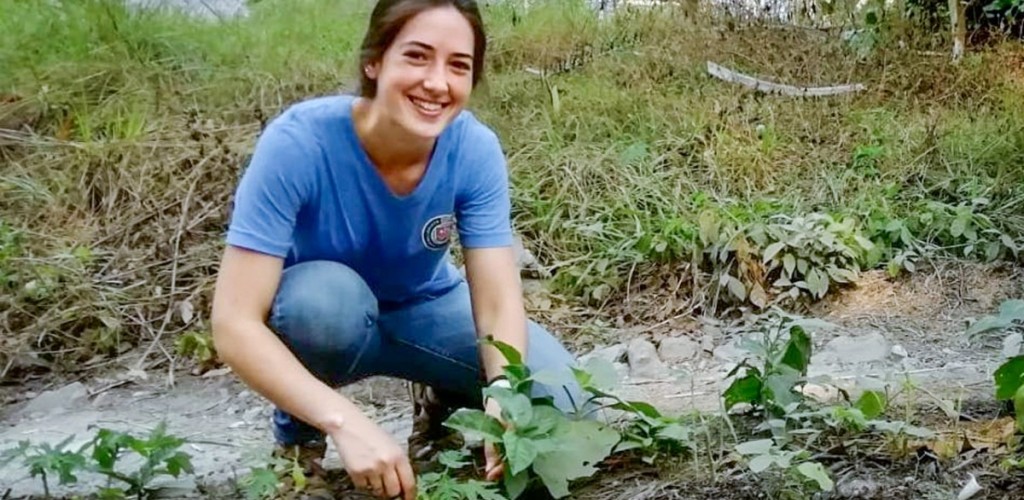“Many of the prospects laid out in the report are bleak,” said Madeline Keep ’21, an engineering master’s student and global virtual intern at the Mario Einaudi Center for International Studies. “But while some of the damage we have caused is irreversible, I believe nature is brilliant, resilient and has the power to heal itself if given the chance.”
On Aug. 9, the IPCC issued the first section of its four-part report, focusing on the science behind climate change. The news is grim: humans are unequivocally to blame for global warming – and we are increasingly seeing the effects of our fossil-fuel dependency. Summer 2021 was the planet’s hottest on record, wildfires are scouring countries around the globe, and storms are more frequent and destructive.
“Climate change is something that quite literally connects the whole world,” said Einaudi Center director Rachel Riedl. “The IPCC report demonstrates the urgent need for evidence-based policies and action, and the Einaudi Center’s faculty and students are leading the way. Virtual internships have allowed Cornell to continue working with local communities for global impact.”
Keep worked with Shorna Allred, professor in the Department of Natural Resources and the Environment and the Department of Global Development in the College of Agriculture and Life Sciences, to create a vulnerability index for Haiti. The index considers soil erosion, land degradation and landslide susceptibility to determine which regions of Haiti would most benefit from agroforestry.
Agroforestry incorporates trees and shrubs into crop- and pastureland, counting on their root systems to prevent landslides and loss of productive topsoil, while their leaves reduce the impact of rainfall.
“Large-scale agroforestry has the potential to increase Haiti’s resilience to landslides, erosion and flooding,” Keep said. “At the same time, it can mitigate climate change through the sequestration of carbon dioxide and excess nitrogen and increase biodiversity, soil health and food security.”
Policy analysis and management major Shilvaan Patel ’24 spent the summer working with Chris Barrett, the Stephen B. and Janice G. Ashley Professor in the Charles H. Dyson School of Applied Economics and Management. Patel is a Laidlaw Scholar in the international Laidlaw Undergraduate Research and Leadership Scholarship Program, which the Einaudi Center administers at Cornell.
Patel helped Barrett create animated maps depicting changes in rangeland health and precipitation over time in Kenya and the Borana Zone of Ethiopia. The study looked at the environmental impacts of livestock insurance – local pastoralists receive payment if their herds are wiped out by drought – which was first introduced to the region in 2010.
“Livestock insurance has been beneficial in the communities we studied,” Patel said. “But this project impressed upon me what we could miss out on if we do not effectively address climate change. As climate change contributes to sustained and more severe environmental degradation, the cost of providing insurance may rise significantly, potentially making it much less effective.”
In 2019, Anna Ulmann ’21 joined Karim-Aly Kassam, Einaudi Global Public Voices fellow and International Professor of Environmental and Indigenous Studies (CALS), in his Einaudi-funded project to document indigenous and rural peoples’ ecological calendars. The calendars use environmental events – for instance, the arrival of a particular migrating bird – as the signal to start specific livelihood activities, such as plowing.
Ulmann, who majored in environmental and sustainability sciences with a minor in climate change, worked on creating calendars with two villages in the Pamir Mountains of Tajikistan.
“The calendars represent a form of adaptation to the harsh impacts of anthropogenic climate change,” she said. “These communities are suffering some of the severest consequences due to their location – from flooding threatening their agricultural land to heat burning the fodder for their livestock.”
This past summer, Ulmann shifted her focus to helping Kassam plan a related climate conference: Rhythms of the Land: Indigenous Knowledge, Science and Thriving Together in a Changing Climate. The Oct. 11–13 event will bring together Indigenous community members, scholars and policymakers to share knowledge and build local capacity to adapt to climate change.
“An important component of ecological calendars is for this to be applicable around the world,” Ulmann said. “Although each calendar is unique to the community, the process of generating ecological calendars is universal.”
All three students found the IPCC climate change report to be a hard-hitting wakeup call to the world.
“This world is full of incredibly motivated people continuing to address the causes and effects of climate change,” Ulmann said. “We already knew there was a lot to be done – so the next step is to proceed with compassion, check in with our neighbors and determine the best ways to support each other quickly.”
Jackie Swift is a freelance writer for Global Cornell.





